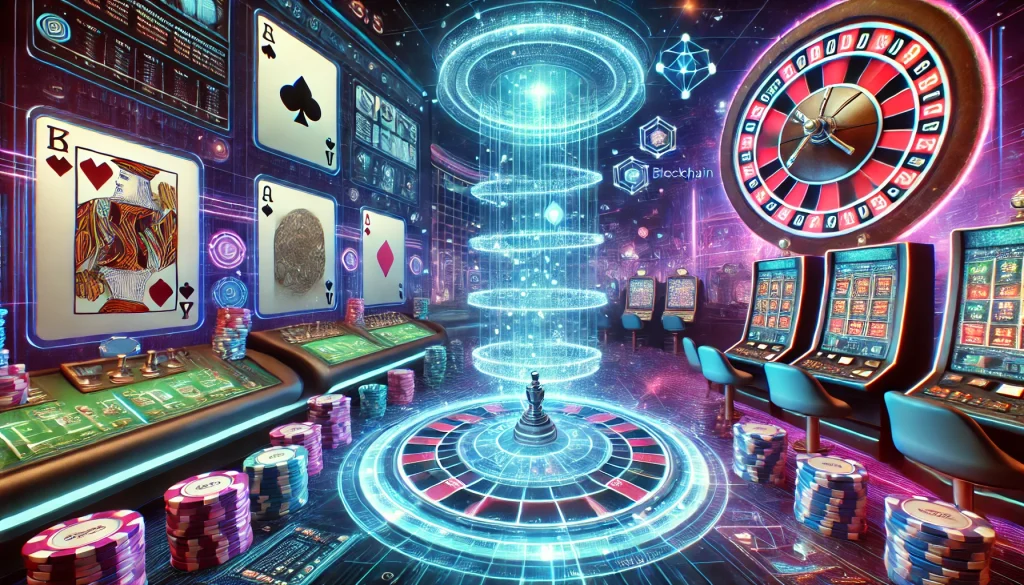
The Future of Gambling: Industry Evolution Over the Next Decade
The gambling industry is undergoing a profound transformation driven by rapid technological advancements, regulatory changes, and evolving consumer preferences. This article delves into the major trends and predictions shaping the future of gambling over the next ten years. From virtual reality integration to advanced blockchain mechanisms, the gambling landscape is expected to reach unprecedented levels of innovation and sophistication.
The Role of Technology in Gambling Evolution
Technology is at the heart of the gambling industry’s evolution, bringing significant changes in how games are developed, played, and experienced. Innovations such as artificial intelligence (AI), blockchain technology, and virtual reality (VR) are reshaping the sector, creating an immersive and secure gaming environment for players worldwide.
Artificial Intelligence and Personalisation
Artificial intelligence (AI) is a game-changer for the gambling industry, enabling unprecedented levels of personalisation. By analysing player behaviour and preferences, AI provides tailored gaming experiences, recommending games based on individual interests and skill levels. Moreover, AI-powered algorithms enhance gameplay strategies and ensure fairness in gaming outcomes. Advanced AI chatbots are also improving customer support, providing real-time assistance for inquiries and troubleshooting.
Beyond personalisation, AI contributes significantly to fraud detection and responsible gambling initiatives. Machine learning models monitor gambling activities for unusual patterns, ensuring that platforms remain safe and secure for all users. These advancements highlight the critical role AI will play in the industry’s future.
Blockchain for Security and Transparency
Blockchain technology is revolutionising the gambling sector by introducing secure and transparent operations. This decentralised system ensures that transactions are immutable, enabling players to trust the fairness and integrity of gaming platforms. Cryptocurrencies, supported by blockchain, facilitate faster, more secure, and anonymous payments, which appeal to tech-savvy gamblers worldwide.
Smart contracts are another significant innovation enabled by blockchain. These self-executing contracts automate payouts and enforce rules without intermediaries, ensuring a seamless gaming experience. As blockchain adoption grows, it is set to become a cornerstone of the gambling industry’s infrastructure.
Changing Regulations and Their Impact
Regulatory frameworks play a pivotal role in shaping the gambling industry’s future. As governments worldwide adapt to emerging technologies and societal concerns, new laws and policies are expected to influence market dynamics significantly.
Global Regulatory Trends
The past decade has seen a wave of regulatory changes aimed at enhancing player protection and ensuring ethical operations. Governments are imposing higher taxes, stricter advertising rules, and enhanced measures to combat problem gambling. Operators must adapt by developing innovative, compliant strategies to remain competitive.
For example, many countries are revising their online gambling laws to include licensing requirements for digital platforms. This shift is paving the way for a more regulated and transparent industry, where players can feel secure about their choices.
Responsible Gambling Initiatives
Responsible gambling is becoming a cornerstone of regulatory efforts globally. Operators are integrating advanced tools such as AI-driven monitoring systems to identify problem gambling behaviours early. Features like self-exclusion options, deposit limits, and reality checks are becoming standard across reputable platforms.
The focus on responsible gambling not only helps protect vulnerable players but also enhances the industry’s credibility. This trend is expected to grow as more stakeholders recognise the importance of ethical practices in sustaining long-term growth.

Consumer Preferences Shaping the Industry
As consumer preferences evolve, the gambling industry is undergoing a transformation to meet new demands. Players today seek convenience, entertainment, and innovation, driving a shift towards mobile gaming, live dealer options, and immersive virtual environments.
The Rise of Mobile Gaming
Mobile gaming continues to dominate the market, with operators investing heavily in optimised mobile platforms and dedicated applications. The convenience of accessing games anytime and anywhere has made mobile devices the preferred choice for many gamblers.
Moreover, advancements in mobile technology, such as faster processors and improved graphics, enhance the gaming experience. Features like instant deposits, live updates, and user-friendly interfaces make mobile platforms indispensable for future growth in the gambling industry.
Virtual Reality and Live Casino Experiences
Virtual reality (VR) is poised to revolutionise the gambling industry by providing players with immersive experiences. VR casinos replicate real-world environments, allowing users to interact with other players and dealers in lifelike settings. This technology bridges the gap between online and traditional gambling, offering a unique blend of convenience and authenticity.
Live dealer games are another significant trend shaping the industry’s future. By streaming real-time gameplay with professional dealers, these games offer an engaging and interactive experience. As technology advances, the combination of VR and live dealer options is expected to redefine the gambling landscape.
In conclusion, the gambling industry’s future is a fascinating blend of technology, regulation, and consumer-driven changes. Over the next decade, innovations like AI, blockchain, and VR will reshape the way people gamble, while evolving regulations and player preferences will steer the industry towards a more ethical and sustainable path.
